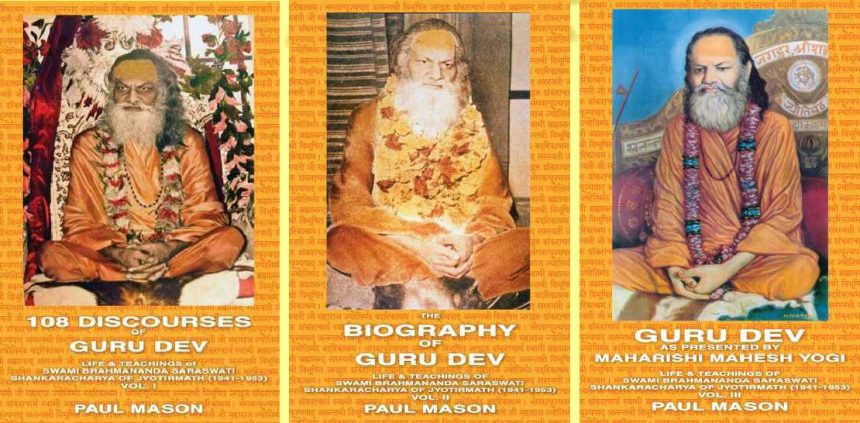This excerpt from a Hive YouTube video focuses on a historical debate surrounding Maharishi Mahesh Yogi, a prominent figure in the Transcendental Meditation movement. The speaker, a researcher and author, Paul Mason delves into the complex relationship between Maharishi and his guru, Guru Dev, particularly the events that unfolded after Guru Dev’s death. He explores the contentious legacy of Guru Dev’s will, which led to power struggles and rival claims to the position of Shankaracharya (a revered spiritual leader). The speaker raises questions about Maharishi’s ambition, his role in the ashram’s management, and his eventual emergence as a global leader in meditation. He also discusses the impact of Maharishi’s encounters with The Beatles and how their rejection of him seemingly shifted his approach to teaching. Throughout the discussion, the speaker presents a nuanced perspective on Guru Dev’s legacy, Maharishi’s rise to prominence, and the complex interplay of spirituality, politics, and personal ambition within the TM movement.
Genesis of Mason’s Research on Guru Dev
The speaker, Paul Mason, describes how his research on Guru Dev (Swami Brahmananda Saraswati) began. He explains that he became interested in learning more about Guru Dev because Maharishi Mahesh Yogi, Guru Dev’s disciple, was reluctant to discuss his guru’s teachings or publish his writings. This lack of information motivated Mason to undertake his own research.
After his first trip to India, Mason says he “couldn’t get it out of my mind that I wanted to know more about what was going on with Gurudev.”
He returned to India and, using his own research to navigate the Himalayas, located Guru Dev’s ashram.
There, he discovered books about Guru Dev and decided to translate them, a task that he says only he and Maharishi have pursued with such vigor.
Mason describes his work as “a challenge,” driven by his curiosity and his determination to uncover the truth about Guru Dev, “whatever it’s worth.”
The conflicting narratives about Maharishi’s relationship with Guru Dev
Paul explains that the conflicting narratives about Maharishi Mahesh Yogi’s relationship with his guru, Swami Brahmananda Saraswati (Guru Dev), stem from Maharishi’s own actions and inactions.
Although Maharishi publicly revered Guru Dev, he didn’t publish his guru’s writings or discuss his teachings in great detail. This led Mason and others to seek information about Guru Dev on their own.
Mason states that his research challenged his own assumptions about what Guru Dev was like and about the nature of the guru-disciple relationship.
Maharishi’s critics, including some of Guru Dev’s other disciples, claimed that Maharishi had ulterior motives in his relationship with his guru. Mason acknowledges those criticisms, noting that Maharishi was “very nosy” and “ambitious” and that he may have exerted some influence over the ailing Guru Dev to secure his own position in the ashram.
Ultimately, Mason concludes that there are “two sides to that story,” and he stops short of making any definitive claims about Maharishi’s motivations.10 He does, however, suggest that the conflicting narratives reflect the complex and often contradictory nature of Maharishi’s personality and legacy.
Examining Maharishi Mahesh Yogi’s Legacy
The sources provided focus heavily on the life and death of Guru Dev (Swami Brahmananda Saraswati) and the controversy surrounding his successor. While they don’t offer a direct discussion of Maharishi’s legacy, they do provide insight into his early life and path to becoming a global spiritual leader.
The sources, primarily a discussion between Paul Mason and others, highlight the impact of Maharishi’s decision to not widely share information about his guru. This decision spurred Mason and others to conduct their own research into Guru Dev’s life and teachings.
Maharishi’s legacy is intertwined with the political climate of India in the mid-20th century. Like many of his contemporaries, including Guru Dev, Maharishi was initially involved in the movement for Indian independence from British rule.
Sources note that Guru Dev opposed the British-backed Hindu Code bill, which aimed to reform Hindu personal laws regarding marriage, divorce, inheritance, and property rights for women. Guru Dev saw this bill as an attack on traditional Hindu values. While the sources don’t definitively say whether Maharishi shared his Guru’s views on this issue, they do point to Maharishi’s strong emphasis on upholding Hindu traditions.
It is important to note that, according to Mason, Maharishi didn’t publicly express overtly political views until after he began teaching Transcendental Meditation in the West. The sources suggest that Westerners, seeking guidance beyond meditation, placed Maharishi in the role of a guru, leading him to address more political and social issues.
Maharishi’s legacy is also significantly shaped by his complex relationship with Guru Dev. While Maharishi outwardly revered his guru, he also strategically navigated the ashram dynamics to secure a prominent position. Some of Guru Dev’s other disciples, along with Mason and other critics, have questioned Maharishi’s motives and ambition.
The sources suggest that Maharishi’s experiences, particularly his interactions with The Beatles and the subsequent scrutiny he faced after their departure from his ashram, significantly impacted his trajectory.
According to Mason, The Beatles’ brief involvement with Transcendental Meditation brought Maharishi significant global attention, but their highly publicized rejection of him as a guru led him to seek new ways to establish his authority and legitimacy.
Mason speculates that Maharishi’s development of the Science of Creative Intelligence (SCI) and his increasing emphasis on presenting his teachings in a more academic and scientific framework were a direct response to the criticism and scrutiny he faced.
In summary, the sources offer a nuanced perspective on Maharishi’s legacy, highlighting the complexities of his personality, ambition, and the significant impact of both Eastern traditions and Western influences on his life and teachings.
The above video review was created by Raja Numan using NotebookLM


